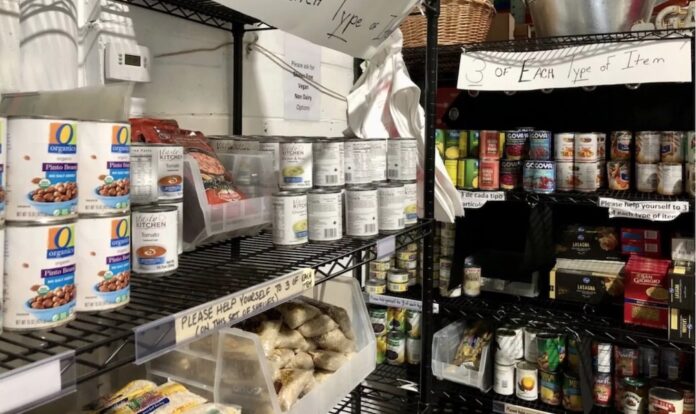A recent study conducted by professors at the University of New Hampshire in partnership with UCLA Law School’s Williams Institute finds that many LGBTQ+ Granite Staters are experiencing “severe” food insecurity or insufficiency.
Reports New Hampshire Public Radio:
In New Hampshire, the most recent data from the Williams Institute on Sexual Orientation and Gender Identity Law and Public Policy reveals 29% of LGBTQ+ individuals face food insecurity, and 28% have an annual income below $24,000.
Furthermore, during the average week, 13% of gay, lesbian, and non-heterosexual New Englanders did not have enough food to eat.
That’s according to a study led in part by professors at the University of New Hampshire in the spring. The study is one of the first of its kind to break down New England food insecurity by sexuality, gender identity, and race.
LGBTQ+ individuals make up 4.7% of the New Hampshire population, and the state is ranked 10th for its LGBTQ+ population size when compared to other states and the District of Columbia. Despite this, research on poverty and food insecurity amongst LGBTQ+ people is limited, especially when it comes to state-level data.
“This is a really big issue that’s getting very little attention,” said Ike Leslie, co-author of the study and extension assistant professor of community development at the University of Vermont.
Leslie said stereotypes and stigma may have prevented research on this topic in the past.
“I think there’s a general stereotype that LGBTQ+ people don’t make less money or maybe even make more money,” said Leslie. “But the numbers don’t bear out that way.”
Transgender individuals experience food insufficiency at some of the highest levels, according to the study.
“When we examined food insufficiency by gender identity, 20%, or about 1 in 5, transgender New Englanders experienced food insufficiency in the past week … which is twice the rate of cisgender women and three times the rate of cisgender men,” said Analena Bruce, a co-author of the study and assistant professor at the UNH College of Life Sciences and Agriculture.
Food insufficiency means a person did not have enough to eat in the past seven days, making it a more severe measure than food insecurity. Food insecurity, as defined by the USDA, is a lack of consistent access to enough food.
Read the complete NHPR story here.
Not a subscriber? Sign up today for a free subscription to Boston Spirit magazine, New England’s premier LGBT magazine. We will send you a copy of Boston Spirit 6 times per year and we never sell/rent our subscriber information. Click HERE to sign up!









